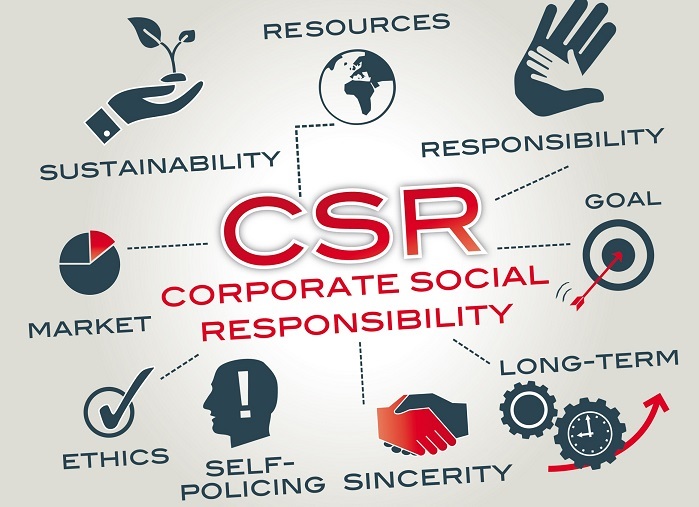
 Data Structure
Data Structure Networking
Networking RDBMS
RDBMS Operating System
Operating System Java
Java MS Excel
MS Excel iOS
iOS HTML
HTML CSS
CSS Android
Android Python
Python C Programming
C Programming C++
C++ C#
C# MongoDB
MongoDB MySQL
MySQL Javascript
Javascript PHP
PHP
- Selected Reading
- UPSC IAS Exams Notes
- Developer's Best Practices
- Questions and Answers
- Effective Resume Writing
- HR Interview Questions
- Computer Glossary
- Who is Who
ESG Investing
Introduction
Doing business is not just about adding profits to the existing capital, but also being socially responsible too. As companies are using environmental resources, they have to give back in one way or the other. Some of them include investing in eco-friendly and sustainable entities, conducting CSR programs, incorporating social practices, etc.

Mutual fund companies, broking houses, and many other financial firms are offering products that are in line with ESG theme. By investing in sustainable businesses, you are, in a way, supporting such practices. If you want to support the environment, ESG investing is one of the may methods to contribute your part.
Meaning of ESG Investing
So, what is ESG investing? Simply put, this concept refers to an investment made into organizations that are working towards building a sustainable future. One of the major environmental issues that has been neglected over the years is climate change.
Both companies and investors are working hand in hand to combat this issue. Similarly, there are many other environmental issues that needs immediate attention. With right strategies in place, companies can achieve the impossible via ESG investing.
Understanding ESG investing
Whatever business your organization is into; you are somewhat directly or indirectly using the resources of the environment and efforts of the social groups. Governance follows the aforementioned factors; it involves choosing the management, diversity and inclusion, following accounting practices, dividend decisions, meetings and interactions with shareholders, etc.
All the ESG factors have a significant impact on organization's growth and performance. As the world is driving more towards eco-friendly products, investors try and attempt to learn to what extent the company supports the ESG factors. Each organization has a distinct way to contribute towards these factors. For instance, some organizations conduct CSR or corporate social responsibility activities to show that they are socially accountable to the environment and society at large.
Some organizations invest in green companies and eco-friendly projects to state that they support the well-being of the people. Some of the CSR activities include contributing their share towards the Prime Minister's National Relief Fund, volunteering in women empowerment NGOs, conducting free computer lessons to backward groups to develop their skills, combating poverty and hunger, investing in medical, etc.
Types of ESG investing
ESG investing is not simply an investment made to attain returns at the end of the day, but it's more than that. On one hand, investors are gaining the returns, and on the other hand, they are contributing towards building sustainable communities. This kind of investment secures the environment and uplifts the societies and communities around.

Research organizations and rating agencies provide ESG scores to organizations based on their corporate social responsibility performance and sustainable investments. Below are some of the types of ESG investing.
ESG investing in stocks We are driving in a period where environment concerns are the hot topic of discussion. So, companies update their profiles frequently, especially when they conduct any corporate activity that supports the ESG factors. This allows investors to simply download the ESG reports from the portal and check their contribution in these areas before making investment in their stocks.
ESG investing in other securities This is another way to help and resolve the environmental, social and governance (ESG) issues. There are mutual fund (MF) schemes that are specifically catered to environmental growth. Case-in-point, ESG themed mutual funds invest majority of the funds in equity and equity-related organizations focused on ESG factors. Green funds are another class of mutual funds that invest majorly in sustainable and environmental-supporting entities.
Impact investing Some environmental projects can have a positive impact in the economy if employed rightly. Investing in such projects not only attain sound gains, but also allows you to serve your part in development of sustainable spaces. Reports of the Global Impact Investing Network stated that 88 percent of impact investing investors achieved surpassed returns.
Pros of ESG investing
Investors splurging their funds in ESG responsible companies are highly beneficial as opposed to other competitors in other sectors and industries.
ESG investing is less risky and less volatile, as the agenda of every organization is to secure and protect the environment at any cost. So, the returns are sound in this type of investing.

If you are looking for portfolio diversification and positive gains with minimal risk, you cannot rule out ESG investing. They are cost-effective and does not involve more expenses during the investment process.
Since the aim of any ESG company is to elevate the environmental standards and create a positive impact in the society, investors can expect better performance on their investments.
Cons of ESG investing
Not every company is primarily focused on ESG factors. While some organizations include ESG in their list, the contributions are limited, making it arduous for the investors to come to a conclusion to whether invest in their stocks or not.
Since there are no set standards that defines ESG companies, comparing and evaluating one company with the other can be a daunting task for the investors.
If you are rookie investor without any know-how of ESG practices, then it could be onerous to weigh the ups and downs of such investments.
Conclusion
ESG investing is a smart way to deal with environmental, societal, and governance issues. This type of investing is also known as sustainable investing or socially responsible investing or impact investing. One can invest in ESG via stocks or mutual funds, where majority of the funds are parked in equity and equity-related ESG entities and projects. As companies and investors are utilizing the external resources from the environment and society, it's a better way to give it back by being accountable and acting responsible.
FAQs
Q1) Who are ideal to invest in ESG?
Ans) Since everyone are utilizing the environmental and societal resources in one way or the other, technically, everyone is eligible to invest in ESG. Investors should conduct their research and see what companies are highly involved in ESG and then make their move.

